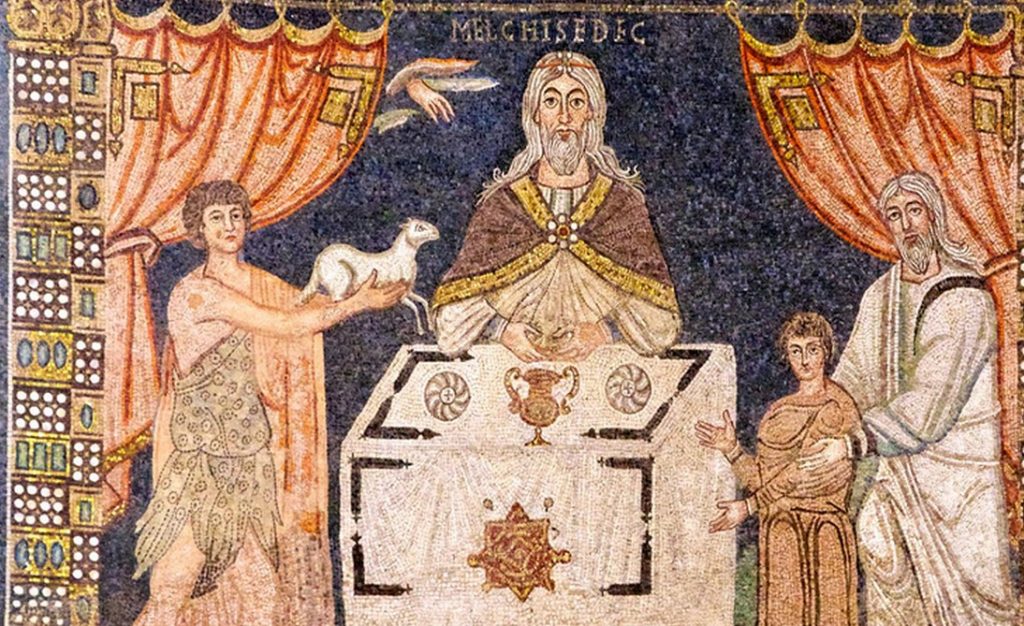As a Catholic, in conversations with fellow Christians, the question of the priesthood often arises. What is the purpose of a priest? Certainly, one can point to the importance of having a Church for doctrinal unity, but that points more to the importance of a Church rather than priests. Christ’s Apostles were fishermen, people from various walks of life, distinctly not part of the priestly contingent in Israel’s society. Why then does the Church have a priesthood, and what function does it serve?
The quick answer to this question is the sacraments, the greatest of which is the Eucharist. The Church boldly claims that the Eucharist is the “source and summit of Christian life” (CCC 1324). Pope Paul VI writes in Presbyterorum ordinis that, “the other sacraments, as well as with every ministry of the Church and every work of the apostolate, are tied together with the Eucharist and are directed toward it.” Priests are consecrated to act as ministers to carry out the thanksgiving offering of the Mass. In Baptism and confirmation, the Christian is initiated into the Church, able to receive Christ in the Eucharist. Confession acts to reconcile sinners back to the Eucharist and Anointing of the Sick gives the dying solace through offering Christ to them physically as they transition to the next life. Marriage is celebrated in Mass and affirmed by the couple entering into a relationship, physically and spiritually, with Christ. The Eucharistic sacrifice, which is the most important task of the priesthood, acts to unify these sacraments together in this holiest of sacraments.
In Jeremiah 33:17-18 when God promises that a descendant of David (Christ) will always sit on the throne of Israel he also mentions how Levitical priests will never lack a man to make offerings for all time. For Catholics, we would generally read this passage to refer to the Mass, which is the continuation of the Levitical offerings we see in the Old Testament.
Belief in the Eucharist varies between protestant denominations, with Anglicans holding a very similar view to Catholics, and Calvinists dramatically departing. Regardless of the specific denomination, I believe that in sum, Protestantism moves away from the doctrine of the real presence because of its theological rejection of Catholic ecclesiology. If communion, as instituted by Christ at the last supper really is his body and blood, it follows that there must be an approved-of manner within the Church by which this Eucharist could be repeated. When the Early Church began to establish certain presbyters who were charged with repeating the Last Supper it was clear that a group of individuals were set aside for this sacrament. Without belief in Christian priesthood, and the authority of these priests to consecrate the sacrament, it becomes much harder to argue for the real presence.
On that Catholic side, it is acknowledged that the thanksgiving sacrifice of the Eucharist is what sanctions the ecclesial priesthood. This can be thought of similarly to the Levites of ancient Israel who were set aside by God, after the events of the Golden Calf in Exodus 23, to care for the temple and its worship. They were further chosen to carry out specific priestly duties, depending on the Levite family they were a part of. Some were to carry the ark, others were to sing, and others to be guards. Without the rite of a sacrifice, the role of the priest was non-existent. In order to get rid of tradition and the priesthood, reformed Christians must be rid of the notion that a sacrifice still existed after Christ’s resurrection.
It is deserving of a whole new article on what it means to say the Eucharist is a sacrifice. In short, Catholics refer to the Mass as a sacrifice because in it we participate in the body of Christ in a physical way. As in ancient Israel, a sacrifice does not refer only to the death of the offering but also to the feasting after. So to participate in the Mass does not in any way indicate that Christ’s death was insufficient or that in every Mass he dies again and again. Rather it is that we participate in the feast of the sacrifice, being brought into new life through the Eucharist.
The single most moving aspect of belief in Christ’s presence in the Eucharist for me comes through those moments in adoration where I have felt close to God in a unique physical manner. Perhaps it is delusion, and if so may God bless me with clarity. For now, I will echo the words of the Catechism and rejoice in “the source and summit of the Christian life.”


Leave a Reply